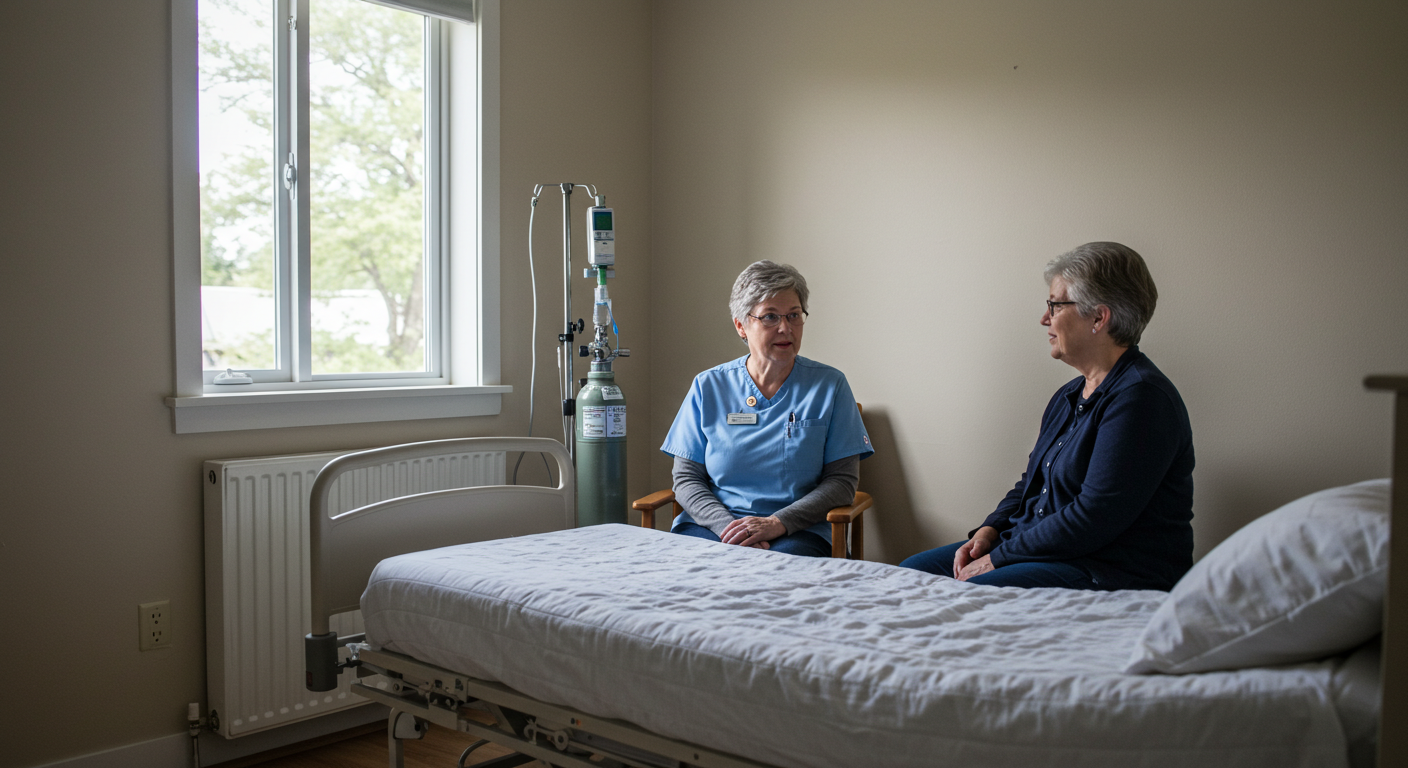Home hospice care is designed to provide comfort, dignity, and support for individuals facing the final stages of a terminal illness. For many families, receiving hospice care at home allows their loved one to remain in familiar surroundings, surrounded by those who matter most. But knowing what services to expect from a hospice provider is essential for ensuring high-quality care and peace of mind. A strong hospice program offers a wide range of medical, emotional, and practical support tailored to the needs of both the patient and the family.
One of the primary components of home hospice is medical care. Registered nurses visit regularly to monitor the patient’s condition, assess changes, and adjust medications as needed. Pain and symptom management are at the heart of hospice philosophy, and nurses ensure that patients are comfortable through careful medication administration and oversight. In addition, hospice providers offer 24/7 on-call support, so that urgent issues or questions can be addressed day or night without delay.
Personal care is another essential service provided through hospice. Hospice aides assist with bathing, dressing, grooming, and other daily activities that patients may no longer be able to manage independently. They also help with repositioning in bed, mobility support, and maintaining skin integrity. These tasks not only maintain physical comfort but also help preserve the dignity of the patient.
Hospice providers also supply the medical equipment and supplies needed to care for the patient at home. This may include items such as hospital beds, oxygen tanks, wheelchairs, commodes, and other mobility aids. In addition to equipment, the hospice team coordinates the delivery of medications, wound care materials, gloves, and other essentials needed for safe and effective care. These supplies are typically covered under the Medicare Hospice Benefit, easing the financial burden on families.
Beyond physical care, hospice teams provide emotional and spiritual support. Counseling services are available for both patients and their loved ones, offering a space to process emotions and navigate difficult conversations. Chaplains or spiritual care providers work with families to honor the patient’s beliefs, whether religious, spiritual, or secular. This holistic approach helps provide comfort and meaning throughout the end-of-life experience.
Supporting the family is a critical aspect of home hospice. Families often serve as the primary caregivers, and hospice teams provide the education and training needed to help them feel confident in their role. This includes instruction on how to manage symptoms, give medications, and provide physical support. Respite care is also available to allow caregivers time to rest, attend to personal matters, or simply step away for a mental and emotional break.
Depending on the patient’s needs, additional services may be offered. These can include physical, occupational, or speech therapy to support comfort and mobility. Dietary counseling is sometimes provided to help with changes in appetite or nutritional needs. After the patient’s death, families can access bereavement services, including grief counseling and support groups, typically for up to 13 months.
When preparing for home hospice care, it helps to make the environment as comfortable and accessible as possible. Families should identify a quiet, accessible space in the home for the patient’s bed and medical equipment. It’s important to remove clutter and ensure pathways are clear to reduce fall risks. Bathroom access should be considered, and any needed safety devices, such as grab bars or raised toilet seats, can often be supplied by hospice. Keeping medical paperwork, contact numbers, and a medication log organized in one place can also make caregiving smoother.
Ultimately, home hospice services aim to enhance quality of life by focusing on comfort, not cure. By providing skilled care, emotional support, and practical tools, hospice enables patients to remain at home while being supported by a compassionate, multidisciplinary team. Families can rest assured knowing they are not alone in the caregiving process—and that their loved one’s final days are being met with dignity and care.



